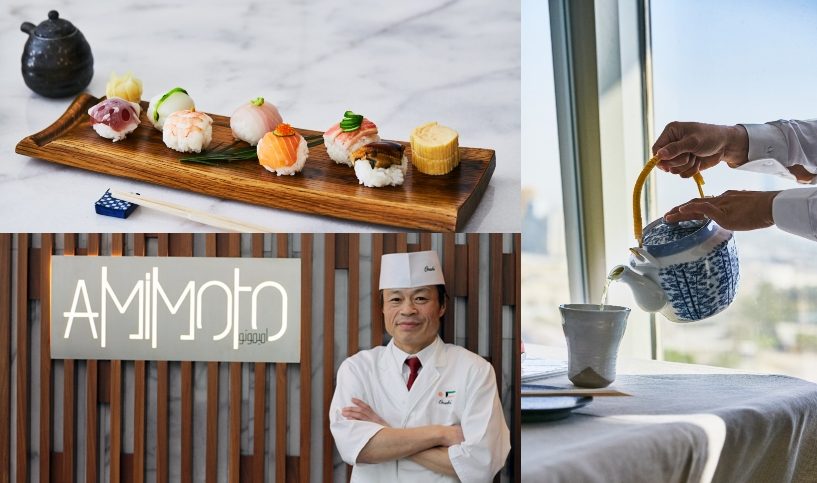For many of us, Japan is a mystical land of sushi, politeness and Anime. It is one of the few countries around the world that have managed to keep their culture comparatively uncontaminated. The Japanese are proud of their heritage and their customs, especially their food.
Many of the Japanese restaurants in Kuwait have modified menus that suit local tastes, but the newly opened Amimoto stands out by insisting on creating a truly authentic Japanese experience.
The Japanese expat community in Kuwait has welcomed the opening of Amimoto, and deemed it a taste from home because the dining experience is so authentic.
When we think of Japanese food we automatically think of sushi. It is so deceptively simple. Starchy white rice and raw fish. The Japanese are wary of cooking their fish.
In the book Japanese Cooking: A Simple Art, which has been the Japanese cooking bible for decades, the author Shuzuo Tsuji writes “… you must learn to look for the subtle, natural aroma and flavor of ingredients.” This summarizes the country’s eating philosophy, flavors don’t need to punch you in the face to be enjoyed.
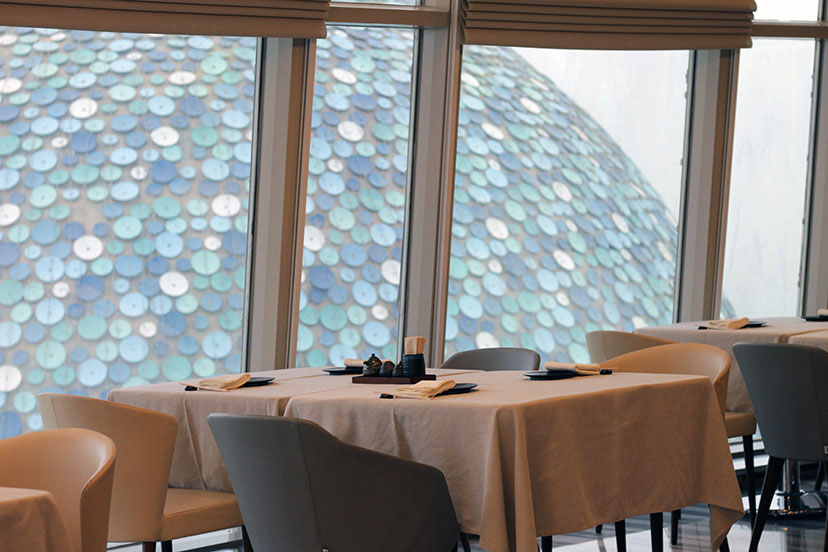
Source: bazaar Studios
They also value presentation and ambience, Shuzuo goes on to say that “No Japanese, however humble, would think of serving food on just any old plate, relying on flavor alone to please.”
The concept creators of Amimoto used this notion as their guiding light while they were developing the concept. The restaurant boasts the best location and view in the country, guests will enjoy a gastronomic exploration of Japan above the clouds from a height of 82 meters in the Kuwait Towers.
They have used the decor and color scheme to evoke the feeling of being in the mountains next to a river. Muted grays, browns and whites with the backdrop of blue from the Kuwait Tower’s water tank makes imagining wood, stone and running water automatic. Even the Japanese Jazz playing the background is unobtrusive but fits in seamlessly with the rest of the ambience.
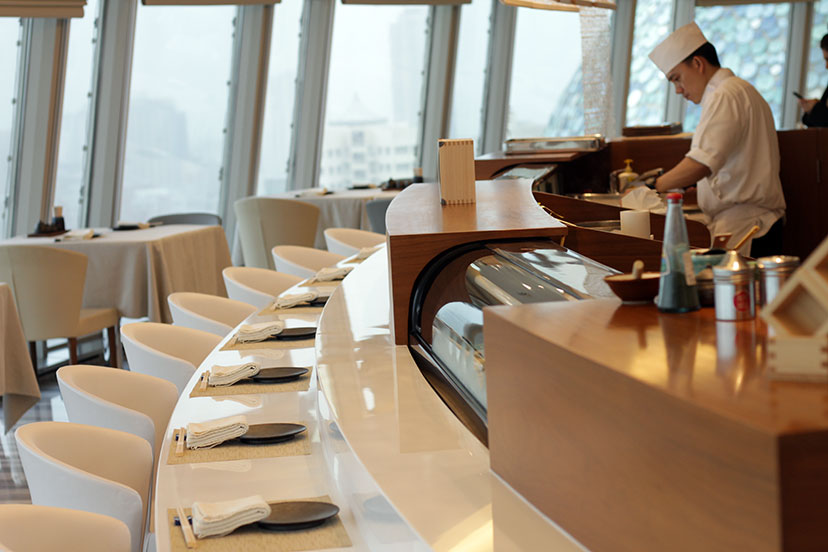
Source: bazaar Studios
The Japanese master Executive Chef behind it all is Fumikazu Onuki. Onuki San is a classically trained Sushi chef. Despite having great knife skills as a child because of helping his father in their fishing business, he still practiced making tea for a year, rice making for three, and two years preparing fish before he was even allowed to touch sushi.
The journey is long, but the dedicated man has been making sushi for over three decades now and is still just as passionate.
View this post on Instagram
He has helped create the menu and the atmosphere. From the hanging silk and rice paper shoju screens to the linens, the serving dishes and even the flatware, everything was painstakingly chosen to be authentically Japanese. For example, the chopsticks are not bamboo, they are made of solid, splinter free Hokkaido wood. Amimoto does not cut even the smallest corners.
Specially designed freezers were brought from Japan, where food can be stored in -60 degree temperatures to keep everything fresh, with the taste, texture and nutritional value pristine. The Bluefin Tuna is flown in from Japan, which incidentally is the chef’s favorite type of fish.
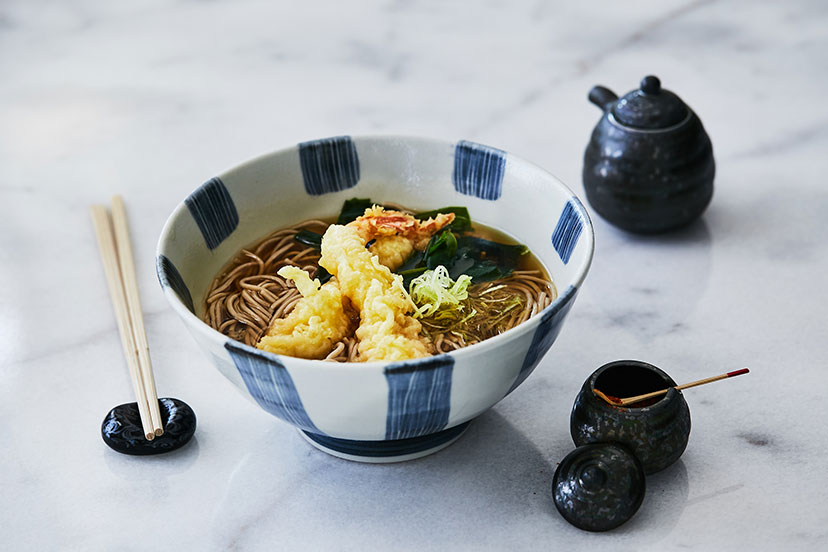
Image courtesy of Amimoto
Vegetables that can be grown locally are sourced from local farms, however spices and other fresh produce are imported from Japan. Sauces are all made in-house, from scratch.
Soy Sauce or shoyu, a staple condiment in Japanese dishes, takes three weeks to ferment properly. And it tastes worlds away from the bottled store-bought kind. The brewed liquid is lighter in color, has a whiff of balanced sweetness and saltiness, it is over all very smooth, you could easily drink it on its own.
The chefs start work hours before the doors open every day. Prepping the fish alone is a two-hour job and the chef prefers the quieter environment to focus. Watching him wielding his samurai-sword like knife is like watching a magician.
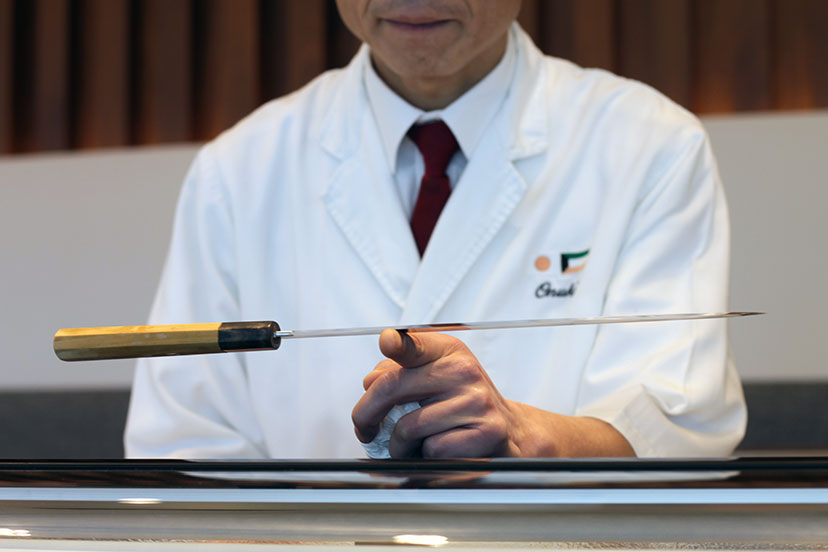
Executive Chef Fumikazu Onuki’s knife skills. Source: bazaar Studios
The knife is custom-made for him and he was on a two-year waiting list before he got it. Every two years he has to take it back to Japan for the natural wood handle to be replaced as it wears out, but the blade is for life.
It is almost like a performance. The team behind Amimoto agree that the food is only half the experience, the culture makes up the rest.
As with any Japanese restaurant you have your choice of sushi rolls, yakitori and more but their Omakase is a must-try! Omakase, short for “omakase shimasu”, is not a testing menu, it translates to “I trust you” and is putting your faith and trust in the chef to create a unique experience just for you.
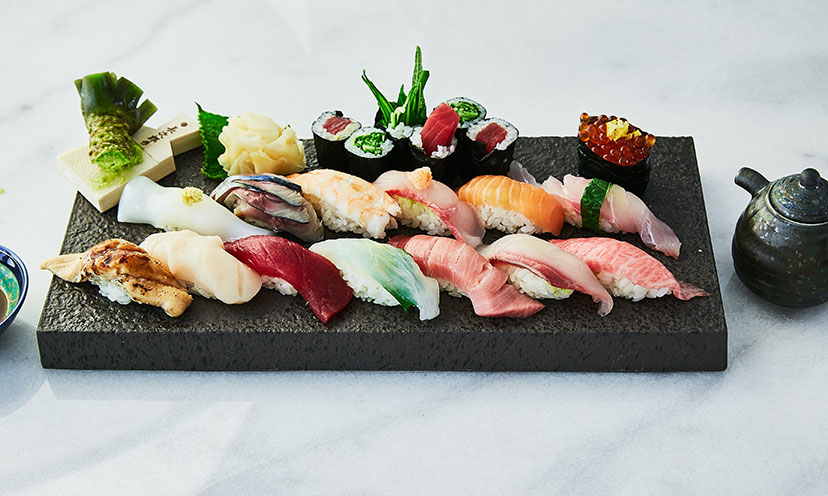
Source: bazaar Studios
Guests are seated at the counter across the chef while he creates ten nigiri pieces that are unique to the group and that experience. Onuki San asked us if we had any allergies or special dietary requirements. One of our group told him that she didn’t eat raw fish.
A beautiful curved wood plate was placed in front of us with a mound of Gari, the pickled ginger which is the perfect food-chaser. You are meant to have some after every piece of nigiri to reset your palate. The plates are made from the same wood, that wooden fermenting barrels are made from. No detail is too small at Amimoto.
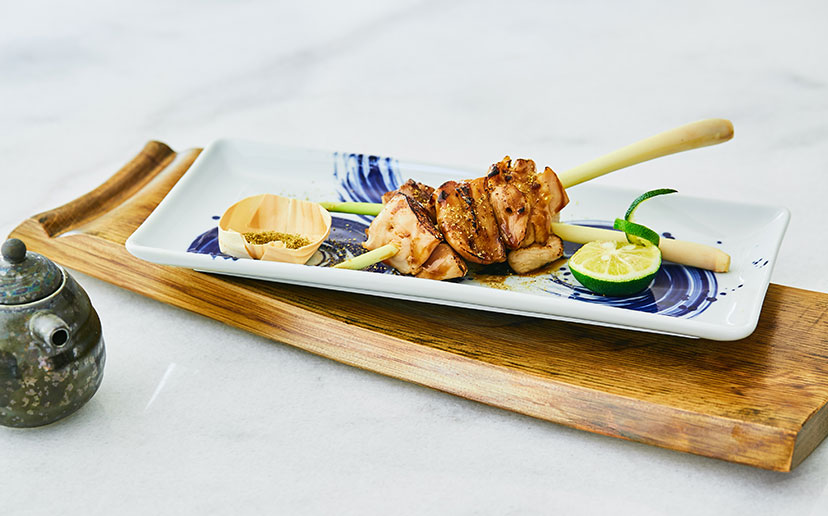
Image courtesy of Amimoto
First on the plate was Yuzu zested squid. The citrusy aroma of the fruit complemented the seafood and gave it an interesting flavor. Our non-raw friend sampled boiled snow crabs. The sushi kept coming, we got to try eel, bluefin tuna, salmon and marinated salmon.
Most surprising was the Okaido scallops, so tender and light despite being totally raw. Everything tasted as fresh as a sea breeze. All of the seafood melted in our mouths. It is an interesting experience.
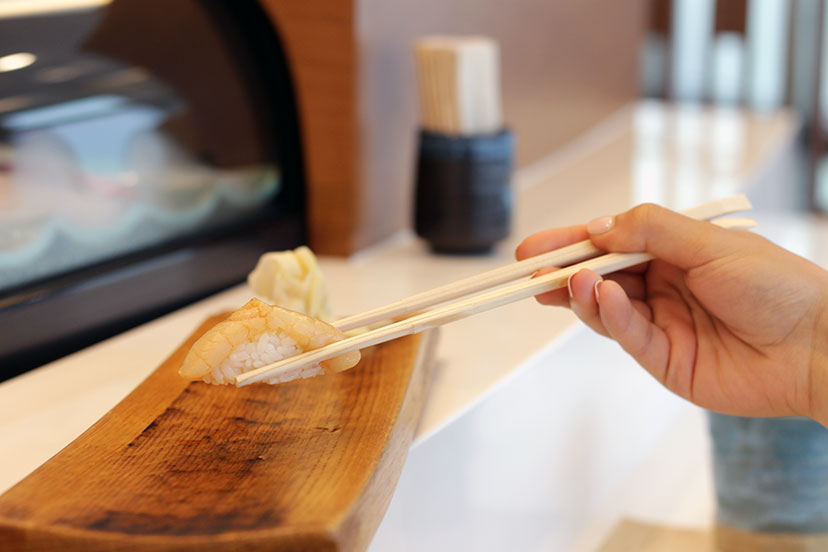
Source: bazaar Studios
The chef works quickly but you still have time to enjoy the company of your friends. And because you only get one piece of each, you savor it, slowly feeling how it tastes, you use all of your senses to enjoy the flavors, the textures, colors and aromas. And with the changing seasons, you know that your next visit the chef might curate a totally different menu for you. It truly is a one of a kind experience.
For dessert we dove into Matcha Tiramisu. It is sweetness is subtle like Japanese cuisine. The matcha enhances the taste of the coffee and is complimented with Anko, sweet red beans all tied together nicely with a big bow of cream.
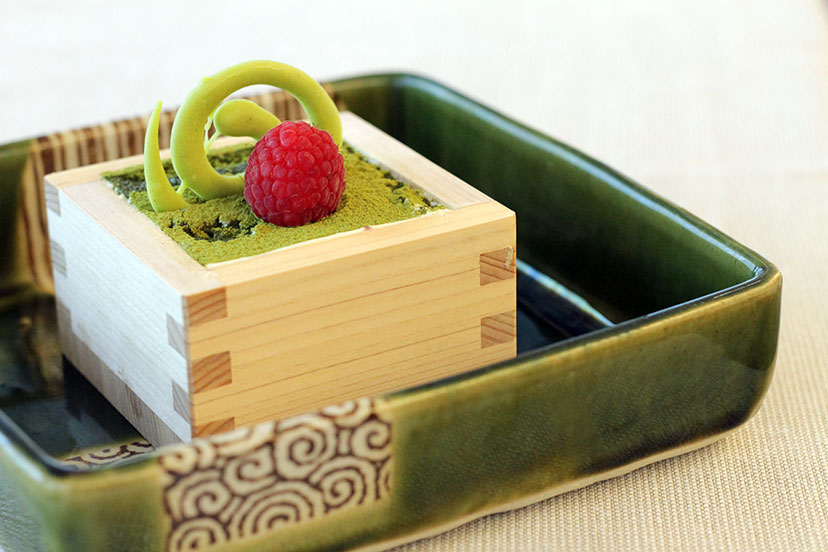
Source: bazaar Studios
We washed it all down with a cold bottle of Ichi, wheat flavored non-alcoholic beer that is exclusive to Amimoto in Kuwait. It is free of artificial sweetness and bettering agents.
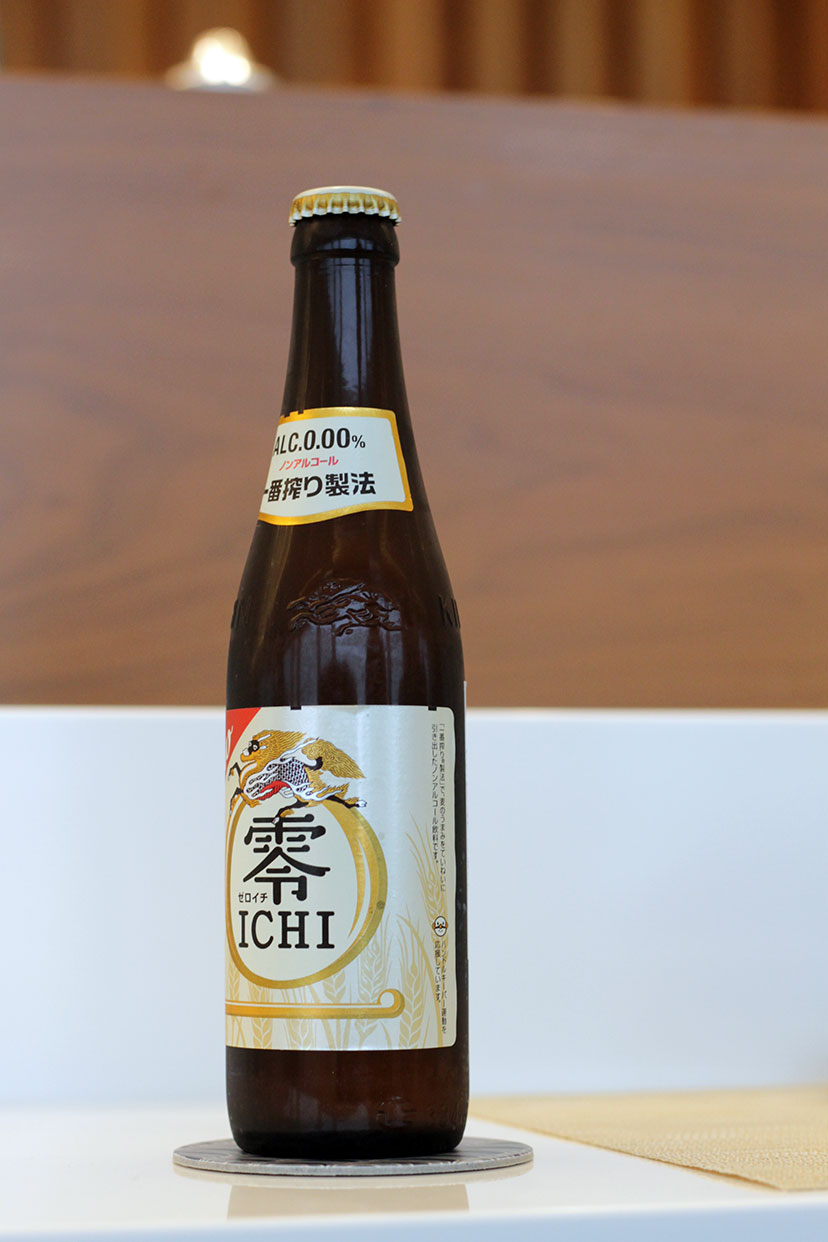
Source: bazaar Studios
A visit to Amimoto is not about eating, it is about appreciating a foreign food culture without trying to transform it into something it isn’t. It is about understanding and embracing different things and realizing that the core essence of Japan is respect and enjoyment.
Amimoto is in the Kuwait Towers and is open every day except Tuesday’s from 1pm – 11pm. For more information and to stay up to date with their news visit them on Instagram @amimoto.kt.



